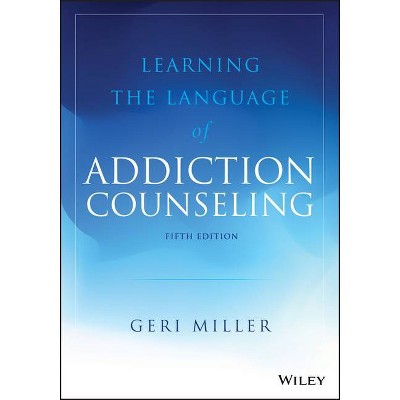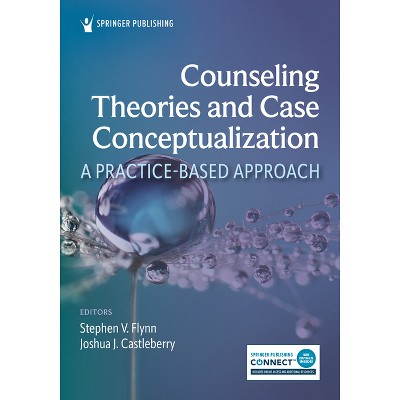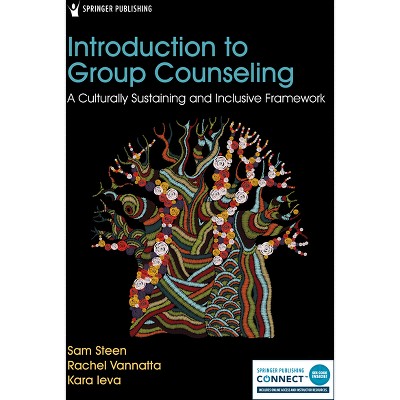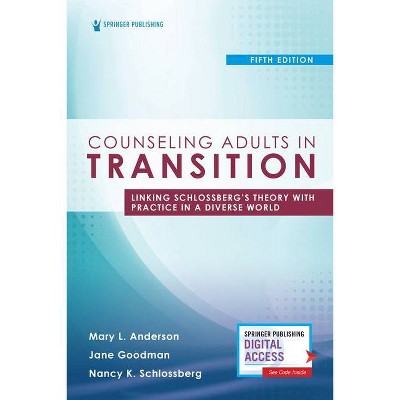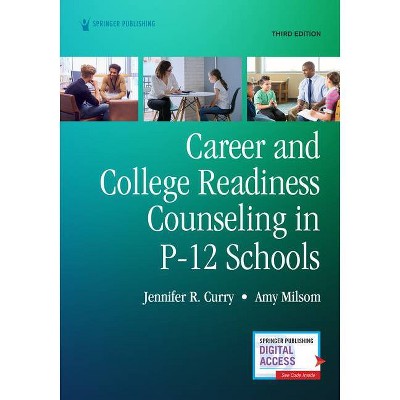Sponsored

Multicultural Counseling - by Latonya M Summers & Lotes Nelson (Paperback)
In Stock
Sponsored
About this item
Highlights
- Employs the framework of anti-oppressive "Liberation Counseling The first multicultural counseling book to use a strengths-based perspective, this innovative text emphasizes culture and diversity as an asset to be nurtured and approached with humility, empathy, and culturally responsive interventions.
- Author(s): Latonya M Summers & Lotes Nelson
- 538 Pages
- Psychology, Psychotherapy
Description
About the Book
"Multicultural Counseling: Responding With Cultural Humility, Empathy, and Advocacy is divided up into three sections. The first section is comprised of four chapters and explores the counselors' worldview. The second section is made up of 19 chapters that encapsulate the clients' worldview. The third section includes four chapters that demonstrate the application of multicultural counseling by broaching race and culture; providing culturally responsive assessment, diagnosing, and treatment planning; finding a supervisor who prepares advocates; and designing a culturally sensitive workplace. Each chapter opens with questions designed to have counselors consider their beliefs, attitudes, and judgments and how they might show up in their work with diverse clients. Chapters include clinical case scenarios where students can conceptualize cases using empathy, humility, and advocacy. A distinguishing feature of this book is that it includes cultures that may have been overlooked elsewhere. The authors also sought to include various faiths in this text-such as agnosticism, atheism, and indigenous spiritual practices-with hopes that counselors' first experience with such would be in this book rather than on their couches with clients. Another chapter is dedicated specifically to transgender people. The goal of this book is to give learners the framework to begin to understand who the people are that they will be serving"--Book Synopsis
Employs the framework of anti-oppressive "Liberation Counseling
The first multicultural counseling book to use a strengths-based perspective, this innovative text emphasizes culture and diversity as an asset to be nurtured and approached with humility, empathy, and culturally responsive interventions. The book is also unique in its consideration of marginalized experiences not limited to ethnicity, race, or poverty, but those that also include polyamory, gamers, immigrants, refugees, people with disabilities, and other marginalized populations. Separate sections consider the particular situations of more than 20 distinct populations to foster treatment that is imbued with sensitivity and understanding.
The book calls for counselors to deeply examine their own beliefs, attitudes, and judgments to ensure they have productive work with diverse clients. Distinct chapters explore the counselor's worldview, the client's worldview, and include demonstrations of how to apply multicultural counseling by addressing race and culture; providing culturally responsive assessment, diagnosis, and treatment planning; and designing a culturally sensitive workplace. Content is enhanced by self-reflection questions, end-of-chapter discussion questions, and multifaceted clinical case scenarios providing an in-depth look at the lived reality of marginalized people. Purchase includes digital access for use on most mobile devices or computers.
Key Features:
- Emphasizes cultural considerations in treating more than 20 different marginalized populations
- Engages counselors to deeply examine their own values and beliefs so they don't adversely impact treatment of different populations
- Written by counselor educators and other subject matter experts with expertise in treating varied populations
- Uses multifaceted case studies to illustrate content and apply concepts
- Provides podcast interviews with members of diverse groups
- Each chapter includes learning objectives, key terms, chapter summary, and discussion questions
- Delivers robust instructor ancillaries, including an Instructor's Manual that maps to CACREP standards
Shipping details
Return details
Trending Non-Fiction


